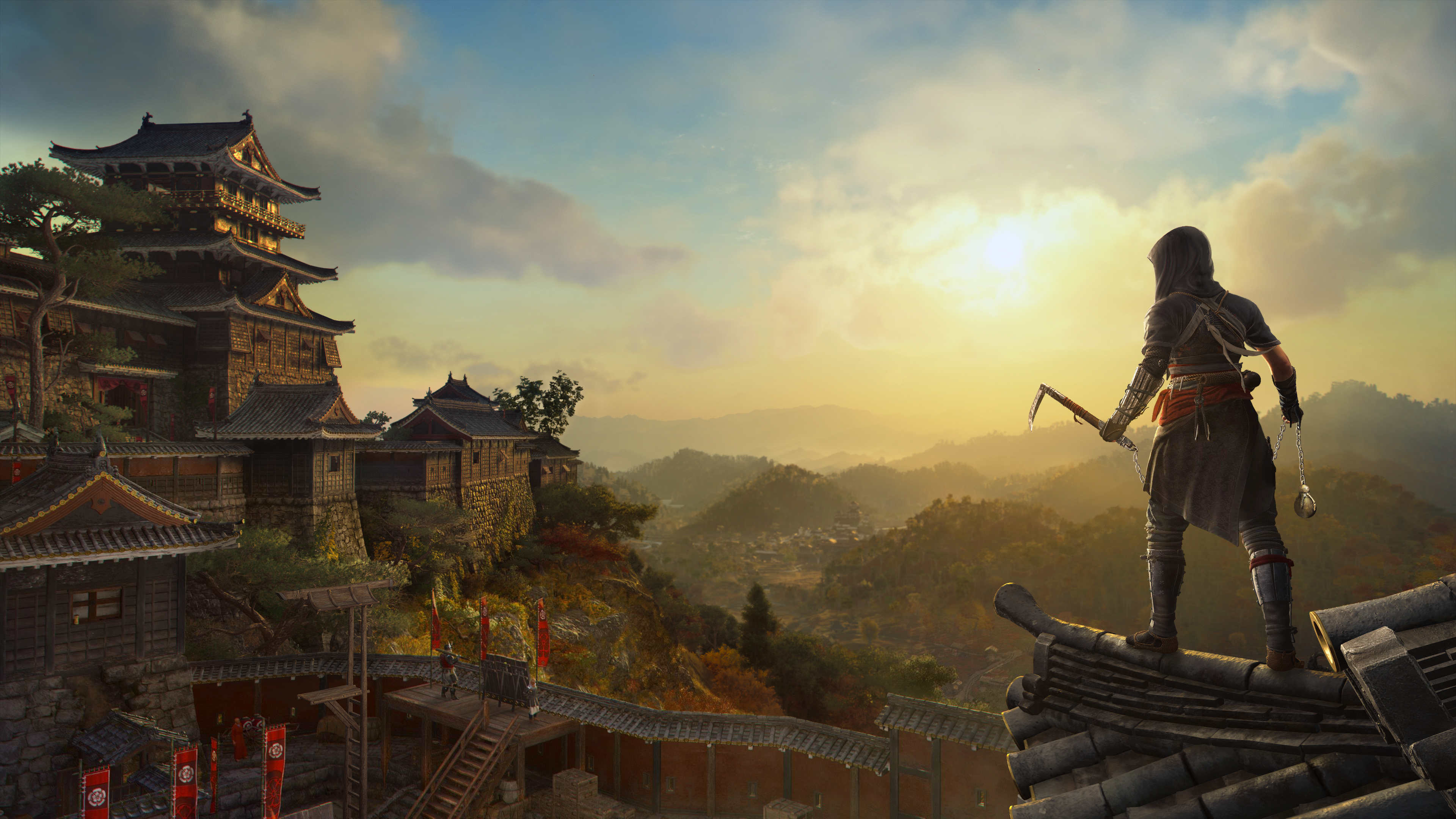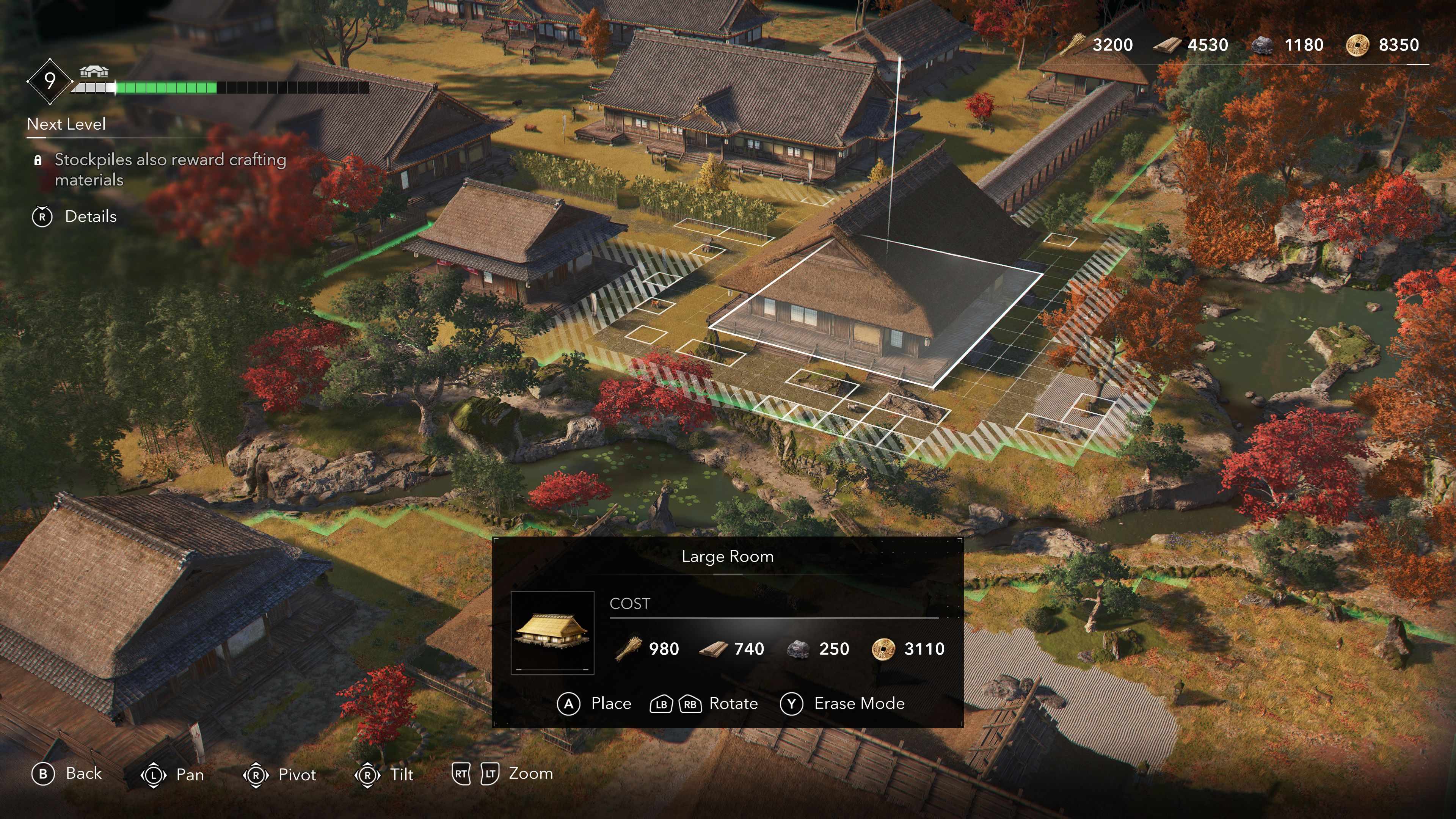
Assassin’s Creed Shadows is set to bring some new features to the series and none are fresher to a franchise about stealthy assassinations than cozy base-building.
On the most basic level, The Hideout in Shadows is a central base - a home - for your characters and followers, and a place for players to “feel a bit more at ease wind down, and take your time a little bit”, according to Ubisoft.
The concept of a base is not a brand new to the series as both the Davenport Homestead in Assassin’s Creed 3 and Ravensthorpe in Assassin’s Creed Valhalla acted as area that players were encouraged to return to occasionally to hear new conversations with followers or recruits, for story reasons, or to see how they grew over time.
Shadows’ Hideout diverges from this point, however, and goes further than both of those examples. At the core of it, it is an almost The Sims-like tile-based building mechanic that sees you plan out and design the entire hideout map building by building, to create your own bespoke and unique hamlet in feudal Japan.
It’s something you may not expect from an Assassin’s Creed game, but it kind of works. It builds on Valhalla’s Ravensthorpe in particular, and offers a balance of customization and personalization as well as some in-game boons.

You’ll be able to expand your hideout with new buildings once you acquire resources in the main game. Some buildings can boost your in-game stats and specs - such as increasing the rate you acquire XP, or enabling your scouts to remove regional alerts; some are purely decorative. But all are wonderfully detailed and seem accurate to the 16th century time period and setting.
Inside your buildings, you can choose the layout of things like your wall space and shelves, which in turn can be decorated as you wish with trinkets, armor sets, paintings and artwork, and more. You can even upgrade the detailing on the exterior of your constructions to achieve certain aesthetics.
Sign up for breaking news, reviews, opinion, top tech deals, and more.
The customization continues on the outside too. You have a healthy range of plants and trees, garden features, screens, and materials with which to design your own Japanese gardens around your buildings. As someone with a background in landscape architecture, the ability to create your own gardens with such accuracy was incredibly pleasing.
It should offer fans a welcome change of pace, slowing things down a bit, while also furthering some immersion and the experience of living in feudal Japan
You can also introduce animals to your Hideout, acquired in-game by protagonists Yasuke and Naoe. While exploring the world of Shadows, the pair may come across an animal which they can draw or paint - if they can get close enough quietly.
Successfully do it and the species of animal then becomes available to you at the Hideout - and you can even pet some of them. The Hideout area will also, like the main game, react to the seasons, and time of day, show weather and so on, going on the same cycles.
More generally, as a location, it is a separate place from the main adventure and map to return to in between missions. It should offer fans a welcome change of pace, slowing things down a bit, while also furthering some immersion and the experience of living in feudal Japan - but still linking it back to the core game by incentivizing players with those in-game benefits.
While my time with the Hideout was a full hour and a bit much in one big chunk, I can imagine it being at its most satisfying when dipping in and out.
The approach of identifying which building you want to build next to get a particular upgrade, going back into the game to target resources you need, and then returning to build said building (or upgrade it) will be a satisfying bit-by-bit method of playing with it. All in all, it’s a very cozy kind of Assassin’s Creed that many fans might not know they needed.
You might also like...
- The five things I loved in my first six hours of Assassin’s Creed Shadows, and the two parts I need to know more about
- The new Assassin's Creed Animus Hub is exactly what I expected it to be: part launcher, part lore and story hub, and a sensible central point
- Assassin's Creed Codename Hexe - everything we know

Rob is the Managing Editor of TechRadar Gaming, a video games journalist, critic, editor, and writer, and has years of experience gained from multiple publications. Prior to being TechRadar Gaming's Managing Editor, he was TRG's Deputy Editor, and a longstanding member of GamesRadar+, being the Commissioning Editor for Hardware there for years, while also squeezing in a short stint as Gaming Editor at WePC just before joining TechRadar Gaming. He is also a writer on tech, gaming hardware, and video games but also gardens and landscapes, and has written about the virtual landscapes of games for years.
You must confirm your public display name before commenting
Please logout and then login again, you will then be prompted to enter your display name.